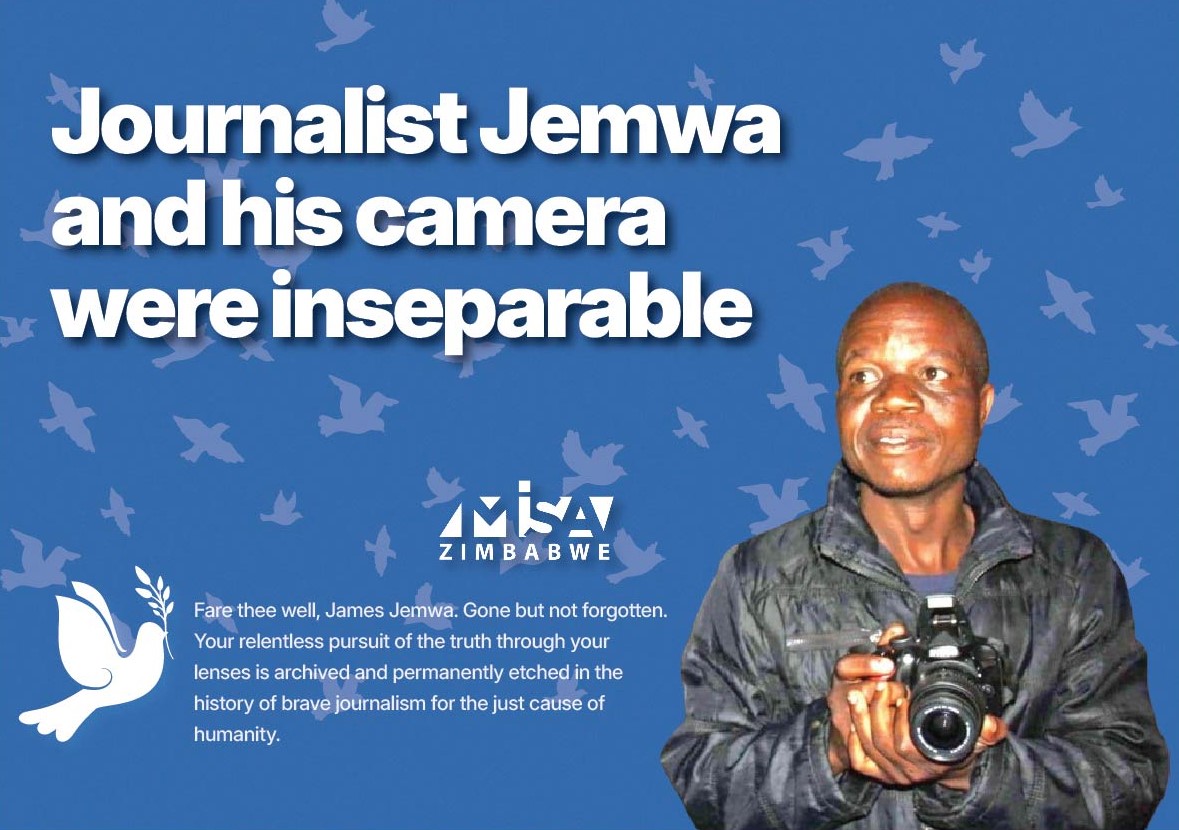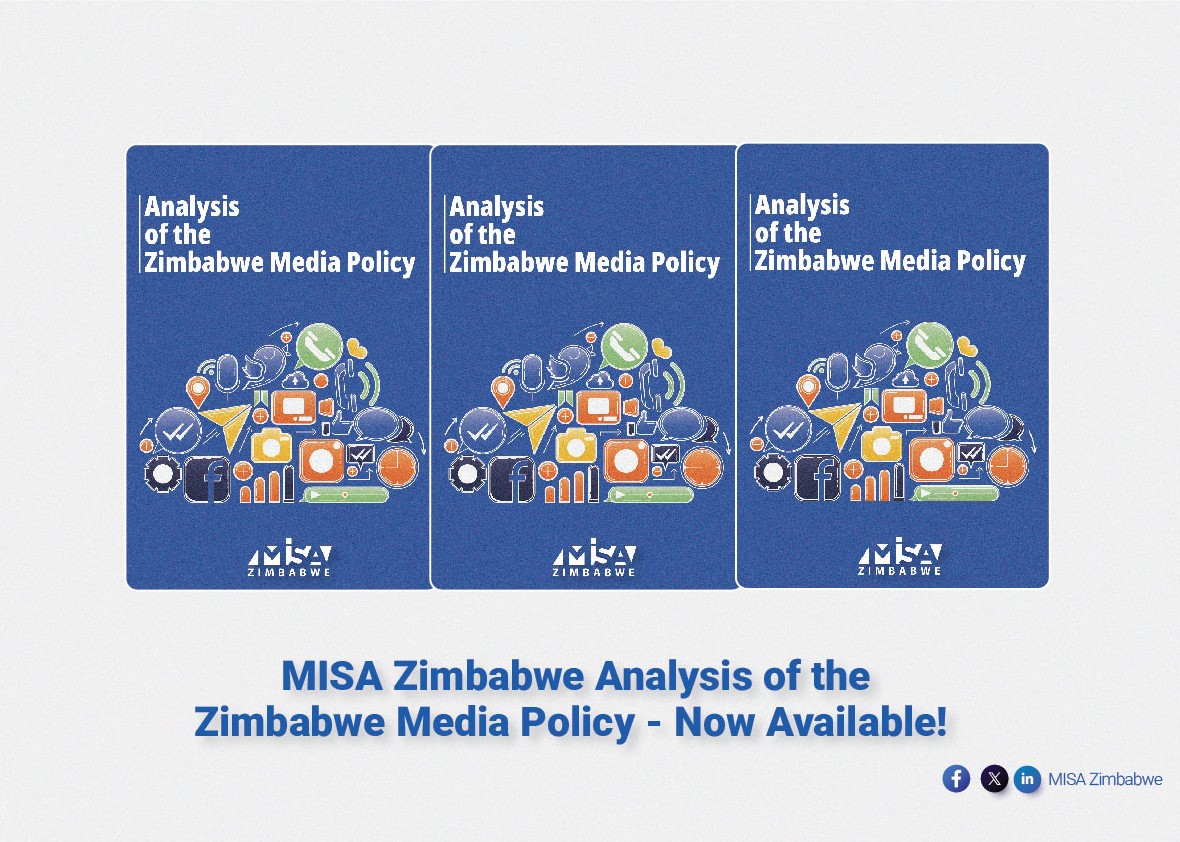The government through the Ministry of Information, Publicity and Broadcasting Services and the Inter-Ministerial Taskforce (IMT) has drafted three draft Bills as part of its commitment and pledges to implement the long-overdue media law and policy reforms.
In that regard, the government convened a legislative drafting workshop or Writeshop on 22 – 25 March 2019 at Monte Claire Hotel in Nyanga.
The Writeshop was attended by representatives from various government departments involved in the revision and drafting of laws relating to, among others, media freedoms. The draft Bills that were discussed during the four-day process are: the draft Freedom of Information Bill, draft Broadcasting Services Amendment Bill and draft Zimbabwe Media Commission Bill
Each of these draft Bills was looked at on a section by section basis and where necessary, changes were effected on the respective drafts.
MISA Zimbabwe was invited to participate in this workshop as a technical partner. The MISA Zimbabwe delegation comprised the organisation’s national director Tabani Moyo, lawyers Advocate Christopher Mhike and Tafadzwa Mugabe, and Loughty Dube, executive director of the Voluntary Media Council of Zimbabwe, representing the Media Alliance of Zimbabwe (MAZ).
Meanwhile, the meeting also discussed the drafting principles of the proposed Protection of Personal Information Bill.
While the engagement process was useful, however, as happens with any negotiation process, there were areas and instances of disagreement between MISA Zimbabwe and the government representatives. Some of the sticking points are discussed below in brief.
The differences highlighted beneath relate to the government’s position on the draft Bills discussed during the March Writeshop. This means that there is still hope that the government will positively address some of the contentious issues discussed below.
The drafting principles did not pose any major challenges for the negotiating parties. The same can be said for the draft Freedom of Information Bill. One issue concerning the draft Freedom of Information Bill, related to the format that requests for information should take.
MISA Zimbabwe argued that it is best if information requests are made orally or in writing in any of Zimbabwe’s official languages. The drafters, however, argued that verbal requests for information would pose challenges for information officers.
While the world over, it has become best practice for Government to declassify information as a means of promoting accountability, the Ministry of Media Information and Broadcasting Services was reluctant to fact in such a proposal. The media stakeholders had proposed that the bill would define the declassification procedure, whereby the stakeholders were proposing that information be declassified after 20 years in line with specified categories.
Serious contestations also emerged around the language used to request and language of retrieval of information. The government argued for the release of information in the language of primary storage, while the media stakeholders argued for the translation of a record as per the language of request. However, the government argued that it was costly and that if a record (which might be stored in coded language) is requested for, the government would reproduce in the language of storage. This in our view is technically denying citizens access to information.
As for the draft Zimbabwe Media Commission Bill, there were a number of contested and unresolved issues. The main issue concerning this Bill pertained to self-regulation of the media industry in Zimbabwe.
MAZ and MISA Zimbabwe had hoped that the issue of self-regulation would be discussed in full and included in the draft Bill. However, as things stand, the issue remains unresolved with no parameters on how the Zimbabwe Media Commission (ZMC) would work with another body to co-regulate the media.
Another contentious issue related to the powers that the ZMC will have when investigating complaints in terms of the proposed law. MISA Zimbabwe argued against ZMC being granted powers to involve police in investigations and to enjoy the same powers as commissions of inquiry in terms of the constitutionally questionable Commissions of Inquiries Act.
The last issue concerning the ZMC related to the role played by the Minister of Information, Publicity and Broadcasting Services in the running and management of the ZMC. It is MISA Zimbabwe’s submission the minister’s role negatively affects the ZMC’s independence and possibly, its neutrality.
The most contentious Bill was the Broadcasting Services Amendment Bill which seeks to make changes to the existing Broadcasting Services Act. This Act regulates broadcasting services in Zimbabwe. Several issues that MISA Zimbabwe objects to could very well cripple the broadcasting industry in Zimbabwe if not remedied.
The first issue of concern is on the amount of foreign funding and ownership a local radio or television station can receive. According to the current Bill, foreign ownership in a local broadcasting service provider cannot exceed 20%.
This is problematic because broadcasting by its nature is a capital intensive industry. Insisting that local funding should make up at least 80% of the capital will mean that several broadcasting services will have difficulties raising the required operational capital to establish such services.
Secondly, the Bill prohibits donations to broadcasting services. This prohibition refers to the donation of actual equipment and financial donations that are at most times used to get community radio stations up and running. For example, this means that a church-based organisation cannot donate radio broadcasting equipment to a local community for the purpose of setting up a religious or faith based community radio station within that local community.
These restrictions on funding are an indirect way of curbing would-be radio and television entrepreneurs from establishing their broadcasting services. MISA Zimbabwe contends that there is need to initially allow foreign entities to fund the establishment of broadcasting services in Zimbabwe. And, as the industry develops and becomes more self-sustaining, government can then reduce the amount of foreign ownership in Zimbabwean broadcasting ventures.
As mentioned above, the drafting process is still ongoing and it is our plea that positive changes will be made to the Bills in line with the regional and continental instruments and principles of which Zimbabwe is a signatory or state party to.
However, if they are not, members of the media fraternity and public are urged to submit their contributions to the Parliamentary Portfolio Committee on Media, Information and Broadcasting Services.
Members of the public will also be able to comment on the Bills during the public outreach meetings that will be held once each respective Bill is approved by Cabinet.
//Ends













